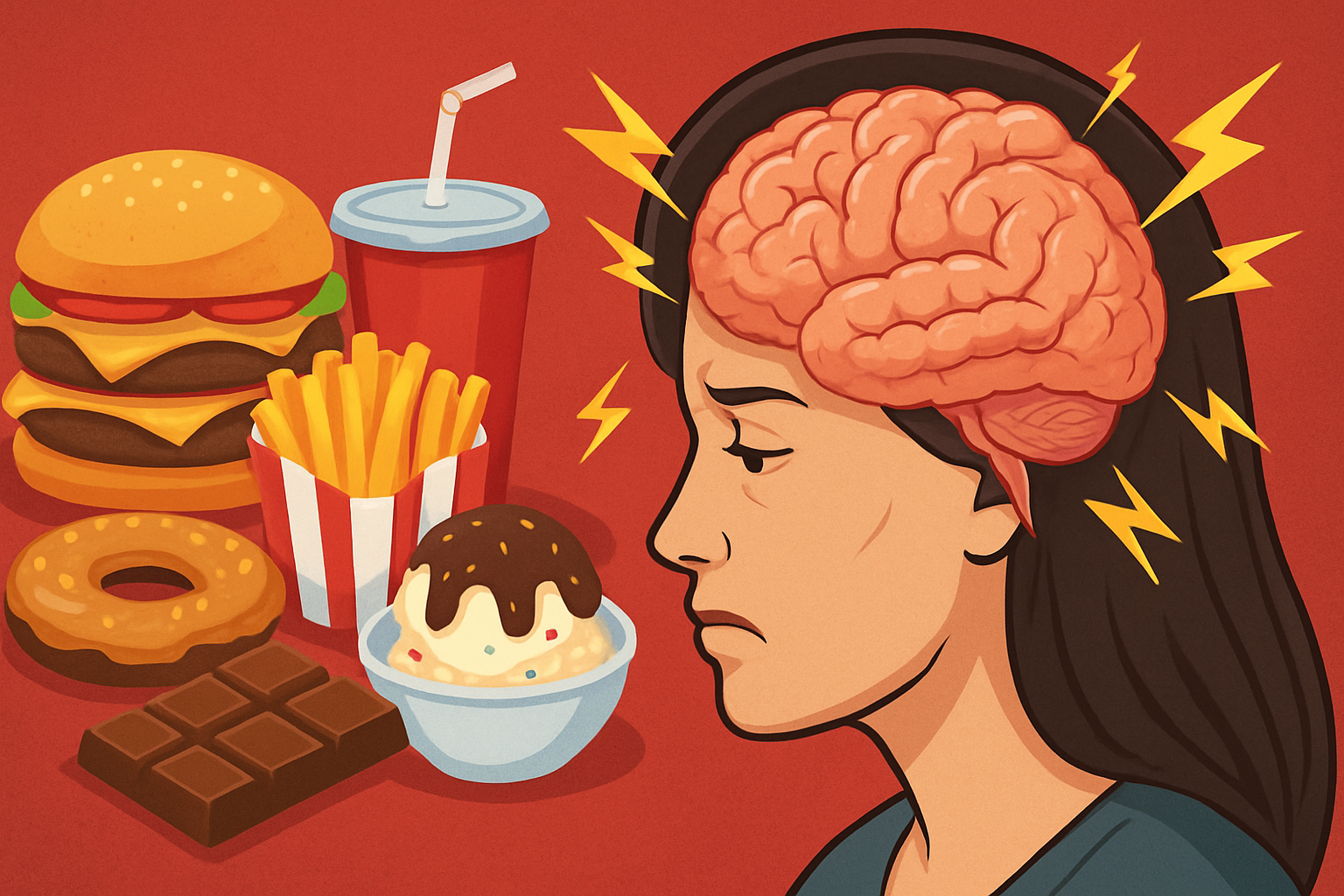Are unhealthy eating habits affecting more than your waistline?
According to new research, the answer is yes. A groundbreaking human study from the University of Sydney has revealed that high-fat, high-sugar (HFHS) diets impair brain function, specifically impacting spatial memory and navigation.
In this article, we break down what the study found, how these popular diets harm cognitive health, and what you can do to protect your brain.
Link Between Unhealthy Diets and Cognitive Function
What Did the Study Find?
A recent study published in the International Journal of Obesity has established a direct link between high-fat, high-sugar diets and reduced spatial memory performance in young adults. This is the first time a human study has explored how these diets affect first-person navigation ability.
The results suggest that the hippocampus, the brain region responsible for memory and orientation, may be vulnerable to poor dietary habits—even in early adulthood.
Why Is This Important?
The hippocampus plays a central role in learning, recalling directions, and processing memories. When it’s negatively affected, basic tasks like remembering a route or focusing on new information can become harder. This research highlights that dietary impact on brain health begins earlier than most people think.
Inside the Study: Virtual Mazes and Memory Tests
Researchers from the University of Sydney recruited 55 participants aged 18 to 38. These individuals:
- Logged their intake of high-fat and high-sugar foods.
- Took part in a virtual reality maze task that tested memory and spatial awareness.
- Had their body mass index (BMI) and working memory measured independently.
The Key Experiment
Participants were instructed to find a hidden treasure chest in a virtual maze multiple times. On the seventh trial, the chest was removed, and they were asked to remember and mark its location.
Those with lower intake of HFHS foods consistently performed better, even after accounting for BMI and working memory capacity.
Key Finding:
Higher sugar and fat intake correlated with poorer spatial memory, even in otherwise healthy young adults.
Brain Fog Before Middle Age?
This study’s implications go beyond academic interest. It suggests that mental clarity, focus, and learning ability may already be deteriorating in people with frequent exposure to unhealthy diets.
“This research gives us evidence that diet is important for brain health in early adulthood, a period when cognitive function is usually intact,” said Dr. Dominic Tran, the lead author.
Is It Reversible?
Yes, and that’s the good news.
The study’s authors believe that the negative effects on the hippocampus can be reversed with healthier dietary choices. This includes:
- Reducing saturated fats and refined sugars.
- Incorporating more whole foods like fruits, vegetables, and whole grains.
- Staying physically active to support overall brain health.
Summary: Diet and Brain Function
Here’s what we now know based on the latest science:
| 🔍 Observation | 📌 Impact |
|---|---|
| High-fat, high-sugar diets | Reduce spatial memory and navigation ability |
| Affects hippocampus | Crucial for learning and memory |
| Occurs in early adulthood | Not just a concern for older adults |
| Reversible with better diet | Cognitive function can recover with healthy habits |
Final Thoughts: Feed Your Brain the Right Way
While it’s common to think of junk food as a threat to physical health, this research shows it may be quietly compromising your mental sharpness too. Whether you’re a student, professional, or parent, understanding the link between food and focus could help you stay ahead—mentally and physically.
The takeaway? Think before you eat. Your brain will thank you for it.
Disclaimer: This article is for informational purposes only and is not a substitute for professional medical advice, diagnosis, or treatment. Always consult with a healthcare provider for dietary or mental health concerns.


